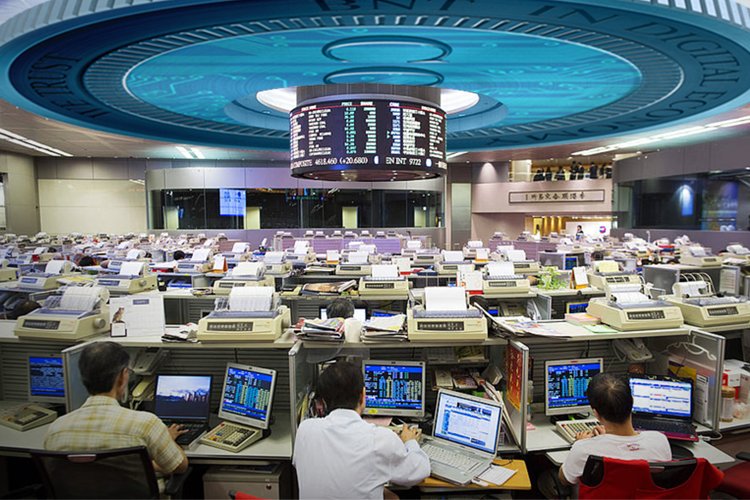The Unpredictability of Chinese Government Disturbs Hong-Kong Stock Exchange

Despite of the real ban on the cryptocurrency in China, local manufacturers of mining equipment remain the industry leaders. And some of them have far-reaching plans to promote their brands in the global high-tech market. For example, three Chinese companies, these are: Bitmain, Canaan Incorporated, and Ebang International Holdings - decided to conduct an initial public offering (IPO) on the Hong Kong Stock Exchange.
Against the background of the falling market of digital assets the intentions of the mining giants look strange. Although, if we try to understand better, there is nothing surprising in their behavior.
Canaan applied for an IPO in May this year, pointing an income of $ 204 million for 2017 in it with $ 56 million as net profit. The target for the company was also quite ambitious - as much as $ 2 billion. However, then it fell to $ 400 million.
Another hi-tech corporation, Ebang, announced its desire to attract investors' money a month later, in June. And its target was already a bit less - $ 1 billion. At the same time, the company declared an annual income of $ 141 million. And the manufacturer had received 95% of this amount from the sale of mining equipment.
And, finally, the Bitmain giant expects to receive an additional $ 3 billion benefit to $ 18 billion of the already existing capitalization during the IPO. The size of his profits is not disclosed. But the control over three-quarters of the mining market speaks about the volumes already.
Hong Kong Stock Exchange took an operation break till the middle of September. Supposedly, for “a certain improvement of the procedure”.
Diplomatic niceties do not deceive anyone. It is possible that exchange authorities and traders simply do not know what to do with this proposal. No analyst will make a hitch of predicting what will happen to the cryptocurrency market, not in a month – even in a day! That same Canaan showed a six-fold increase in profits from 2016 to 2017. But two-thirds of 2018 are behind- and what has been happening to the profit?
And everything is not that bad. The point is that the jumping cost of virtual tokens does not affect the income of mining equipment manufacturers. After all, the hardware is more often sold for fiat money, and not for the crypto. Consequently, the key indicator of the market for these firms is the number of potential consumers - miners.
The number of miners increases every year. Only in Russia, so called the world leader of "gray mining", the number of users increased from several hundred to 30 thousand from 2014 to 2017. And by the end of 2018, according to analysts of "Finam", can increase to 170 thousand. And there are other giant countries like India, where the number of interested consumers is generally not accountable. This is just the case when human capital grows even faster than the value of the cryptocurrency in the best period of its existence.
Why is Hong Kong backpedaling?
The answer is plain to see. The reason is that the main production capacities of companies are concentrated in China. And its policy towards the crypto market can be called murderous in the recent time. The authorities of the Celestial Empire not only banned the turnover of virtual assets on its territory but even refused to accept crypto-exchange forums and rent out offices to companies of the appropriate profile.
They stand far from manufacturers yet. But no one can guarantee that tomorrow there will be no decree banning the release of mining equipment. The factories will either have to be closed, or moved to other countries, or re-profiled. It is not necessary to explain what will happen to the value of the proposed shares if this happens.
However, perhaps there is another reason for the stockbrokers’ uncertainty - the improvement of technology. More and more home appliances are released with a pre-installed mining function. Until the end of the year, many releases of this technique are planned. For example, that same Bitmain is planning the release of a wi-fi router capable of mining the crypto while the owner is asleep. Canaan is going to present a TV-set that will be mining while football is in progress. The manufacturer of household appliances Midea Group has patented a mining chip that can be installed in any electrical device such as a refrigerator, washing machine, coffee machine or air conditioner ... All these trivial devices plugged in will be able to continuously “mint” virtual coins!
No wonder that these companies have urgently needed money. But the explosive development of technologies has a downside. The value of the cryptocurrency is largely composed of its rarity and complexity of generation. For any effective mining in Venezuela, for example, it is necessary to spend about $ 3000 on electricity. In some countries, the price may rise to $ 25,000. It is likely that the less a consumer will spend time and energy, literally and figuratively, on coins mining, the cheaper they will cost. If gold was dangling about, would it be valuable?
And if so, then the manufacturers will be able to make money immediately but then the market will just collapse, like that very soap bubble. In this case, the shopworn comparison of the crypto market with the dotcom market, which fell into oblivion in summer, will acquire a very certain meaning.
Obviously, it is for these two reasons the Hong Kong stock exchange is backpedaling. On the one hand, the uncertain position of the Chinese authorities concerning the virtual market, on the other hand - greed of manufacturers who want to initiate a new, this time technological hype, do not allow financiers to take a positive decision. Shares should be traded, and not transformed into toilet paper a couple of years later.